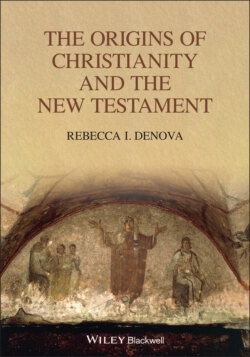Читать книгу The Origins of Christianity and the New Testament - Rebecca I. Denova - Страница 36
E. P. Sanders
ОглавлениеA major contribution was the publication of several books by an American scholar, E. P. Sanders. The overarching theme of his work is that New Testament scholars should cease analyzing Jesus as a “Christian” and focus on “Jesus the Jew.” To achieve such an analysis, scholars had to have a full grounding in ancient Judaism first.
Paul and Palestinian Judaism (1977) was a magisterial work that examined the evidence for various Jewish sects as well as the available literature at the time. Sanders uncovered “Paul the Pharisee” and argued against the misconceptions concerning what it meant to be a Pharisee in the first century. More importantly, he analyzed the accusations against the Pharisees in the gospels in light of their rhetorical function. The gospels consistently claim that the Pharisees deliberately kept people from “being saved.” But the concept of “salvation” here is a Christian one; other Jews at the time did not articulate their relationship with God in terms of salvation. Their concern was the Prophetic claim of “restoration” (more on this in Chapter II). In other words, Christians criticized the Pharisees for views they did not hold.
Another major opus was Judaism: Practice and Belief (1992). To be an expert on early Christianity, it is necessary to fully understand the Jewish worldview and how it functioned in their daily lives. In addressing the polemic of the gospels against the Temple in Jerusalem, Sanders outlined the details of Temple worship.
